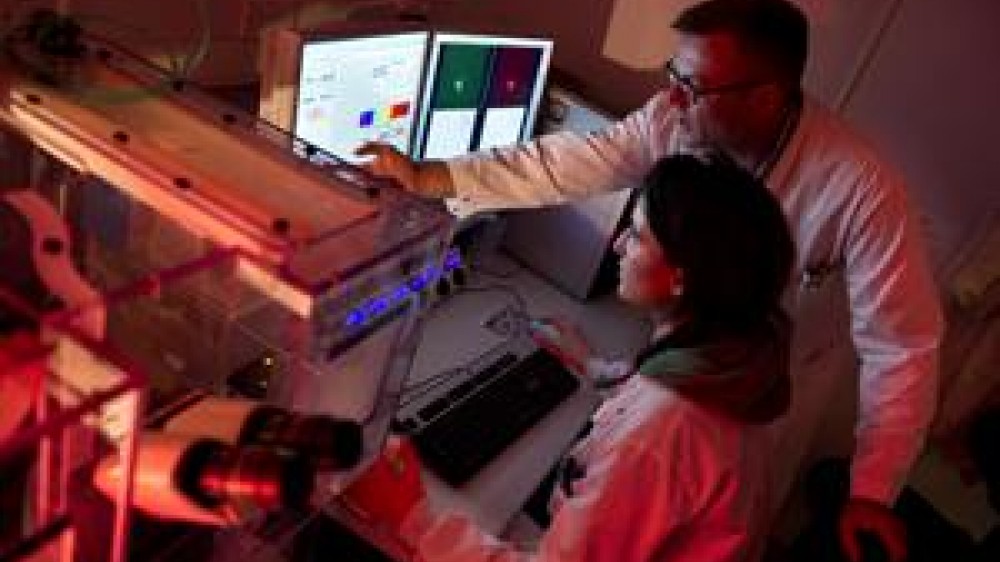16 new NC3Rs-funded PhD Studentships awarded

We are pleased to announce that we have awarded 16 new PhD Studentships, totalling £1.44 million.
Our Studentships embed the 3Rs in the training of early career researchers across a range of disciplines. The projects include using human tissue to replace mouse models in cancer research, developing a Drosophila model of intellectual disability syndrome, replacing animal-generated antibodies with affimer proteins and improving the welfare of rats used in chronic pain research.
This year, we have made two awards jointly with the British Heart Foundation (BHF) to projects focused on achieving 3Rs impacts within cardiovascular research. One award will fund the development of non-mammalian tools for cardiotoxicity testing to reduce the use of animals in drug screening, while the other will fund a study of arrhythmia using induced pluripotent stem cells as a potential replacement for the current animal models.
We have also awarded two joint PhD Studentships with Unilever for projects within non-animal safety assessment. These awards will fund the development of human cells as an alternative model for investigating chemical-induced DNA damage, as well as advanced imaging to reduce animal use in assessing skin penetration of chemicals.
One project falls under our 2019 highlight notice, which aims to build confidence in the use of non-protected multicellular organisms as a partial replacement model. This award has been made to Dr Patricija van Oosten-Hawle, University of Leeds, to develop a C. elegans model of Alzheimer’s disease.
The awards are made directly to the principal investigators. Interested students should contact prospective supervisors directly. For full details, visit the Studentship vacancies page.
To learn more about previous awards, including case studies, read our PhD Studentship Review.
Awarded Studentships:
Dr Kirsty Bannister, King’s College London – Refinement: The impact of peri-operative analgesia on neuropharmacological outcomes in rodent models of chronic pain
Dr Paul Bowyer, University of Manchester – Development of an in vitro model to dissect the mechanism of fungal persistence in the cystic fibrosis lung
Dr James Brown, University of Lincoln – Towards an open-source, equipment-agnostic framework for automated welfare monitoring in the home cage
Dr Tao Chen, University of Surrey – Developing an in silico, spectroscopic imaging toolkit for assessing skin penetration (Joint award with Unilever)
Dr Spencer Collis, University of Sheffield – A living biobank of post-surgical residual glioblastoma to replace animal studies
Dr Julia Edgar, University of Glasgow – A novel tool that embeds 3Rs principles in multiple sclerosis research
Dr Katja Gehmlich, University of Birmingham – Use of induced pluripotent stem cell derived cardiomyocytes to test the consequences of genetic variants in atrial and ventricular arrhythmias (Joint award with the BHF)
Professor Thomas Helleday, University of Sheffield – Ex vivo drug screening using human tissue to personalise cancer therapy and replace murine avatars
Dr Yung-Yao Lin, Queen Mary University of London – 3D bio-printing human pluripotent stem cell-derived skeletal muscle constructs for disease modelling and drug discovery
Dr Richard Mort, University of Lancaster – A next generation Quiescence and Cell Cycle Indicator for the refinement and reduction of animal usage in proliferation assays
Professor Simon Reed, Cardiff University – INDUCE-seq: a novel tool for next generation risk assessment (joint award with Unilever)
Dr Christian Tiede, University of Leeds – Direct replacement of secondary antibodies by affimer proteins
Dr David Turner, University of Liverpool – A 3Rs approach to assess drug toxicity on the mammalian embryo during early pregnancy in vitro
Professor Daan van Aalten, University of Dundee – Modelling O-GlcNAc transferase Intellectual Disability in Drosophila
Dr Patricija van Oosten-Hawle, University of Leeds – An improved C. elegans model of Alzheimer's disease to monitor neuronal signalling activity (NC3Rs 2019 highlight notice)
Dr Grant Wheeler, University of East Anglia – Development of non-mammalian, pre-clinical screening tools for the predictive analysis of cardiotoxicity (joint award with the BHF)
